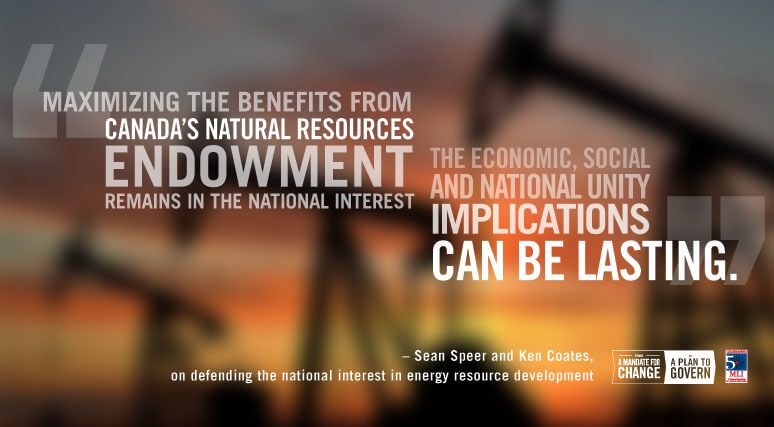
Macdonald-Laurier Institute Senior Fellows write that a sound federal policy on pipelines would defend the national interest, avoid uncertainty in the regulatory process, and engage Aboriginal peoples
OTTAWA, Feb. 11, 2016 – Of all the issues facing Canada’s newly-elected Liberal government, few present more pitfalls than energy resource development.
As the prime minister has acknowledged, a healthy resource sector is vital to Canada’s economy, and to fostering prosperity for Aboriginal peoples. He is right to make it a priority to renew Canadians’ faith in the regulatory process for pipelines, and to support the construction of energy infrastructure. And yet concern in places like Quebec about the safety of projects such as the Energy East pipeline, and the resulting backlash in the West, threatens to fracture national unity.
 That’s why the Macdonald-Laurier Institute, in a new commentary on energy resource development, is here to offer guidance.
That’s why the Macdonald-Laurier Institute, in a new commentary on energy resource development, is here to offer guidance.
MLI Senior Fellows Ken Coates and Sean Speer urge the government to stash the clever quips falsely cleaving “resources” from “resourcefulness” as the prime minister did in Davos, Switzerland recently. Instead it should become a vocal advocate for natural resource development.
“Maximizing the benefits from Canada’s natural resources endowment remains in the national interest – the economic, social, and national unity implications can be lasting”, say Coates and Speer.
To read the full commentary, click here.
Coates and Speer offer several recommendations:
- Acknowledge the importance of resource development: Canada’s natural resources need an advocate. This is a great opportunity for the prime minister. Once a project has received impartial approval based on science and evidence, such as from the National Energy Board, the government should shift to being an advocate. “The bully pulpit can be a powerful tool – particularly for the current prime minister – and the government should use it to promote resource development as a key part of Canada’s economic future rather than evidence of a backwardness”, the authors write.
- Create more certainty: Canada can’t afford to sow confusion among natural resource investors. And yet that’s been the result of some of the new government’s initiatives, such as the plan to ban tankers on Canada’s west coast. “The Government should not be cavalier about vague commitments that scare away investment and opportunity”, the authors write.
- Recognize the limits of compromise: Coates and Speer note that while few would argue that Canada’s approval processes must be robust in terms of protecting the environment and Aboriginal interests, they caution that this will likely fail to win over many pipeline opponents, rather it will be seen as an opportunity to force more delay on projects.
- Include Aboriginal peoples: Natural resource development holds the potential for Aboriginal Canadians to find a new economic footing. Far-flung regions of the country, including many reserves, now have high-paying and stable employment where previously they had none. The government needs to find new ways to partner with First Nations. One proposal – for governments to share the revenues from natural resource projects with Aboriginal communities – is already gaining traction.
 This paper is the eighth entry in MLI’s series, From A Mandate For Change To A Plan To Govern.
This paper is the eighth entry in MLI’s series, From A Mandate For Change To A Plan To Govern.
The series, which is publishing weekly from the Throne Speech to the first budget this spring, is designed to offer practical policy recommendations that help the newly-elected government follow through on its election promises.
***
Ken Coates is a Senior Fellow with the Macdonald-Laurier Institute and Canada Research Chair in Regional Innovation in the Johnson-Shoyama Graduate School of Public Policy at the University of Saskatchewan.
Sean Speer is a Senior Fellow at the Macdonald-Laurier Institute. He previously served in different roles for the federal government including as senior economic adviser to the Prime Minister and director of policy to the Minister of Finance.




